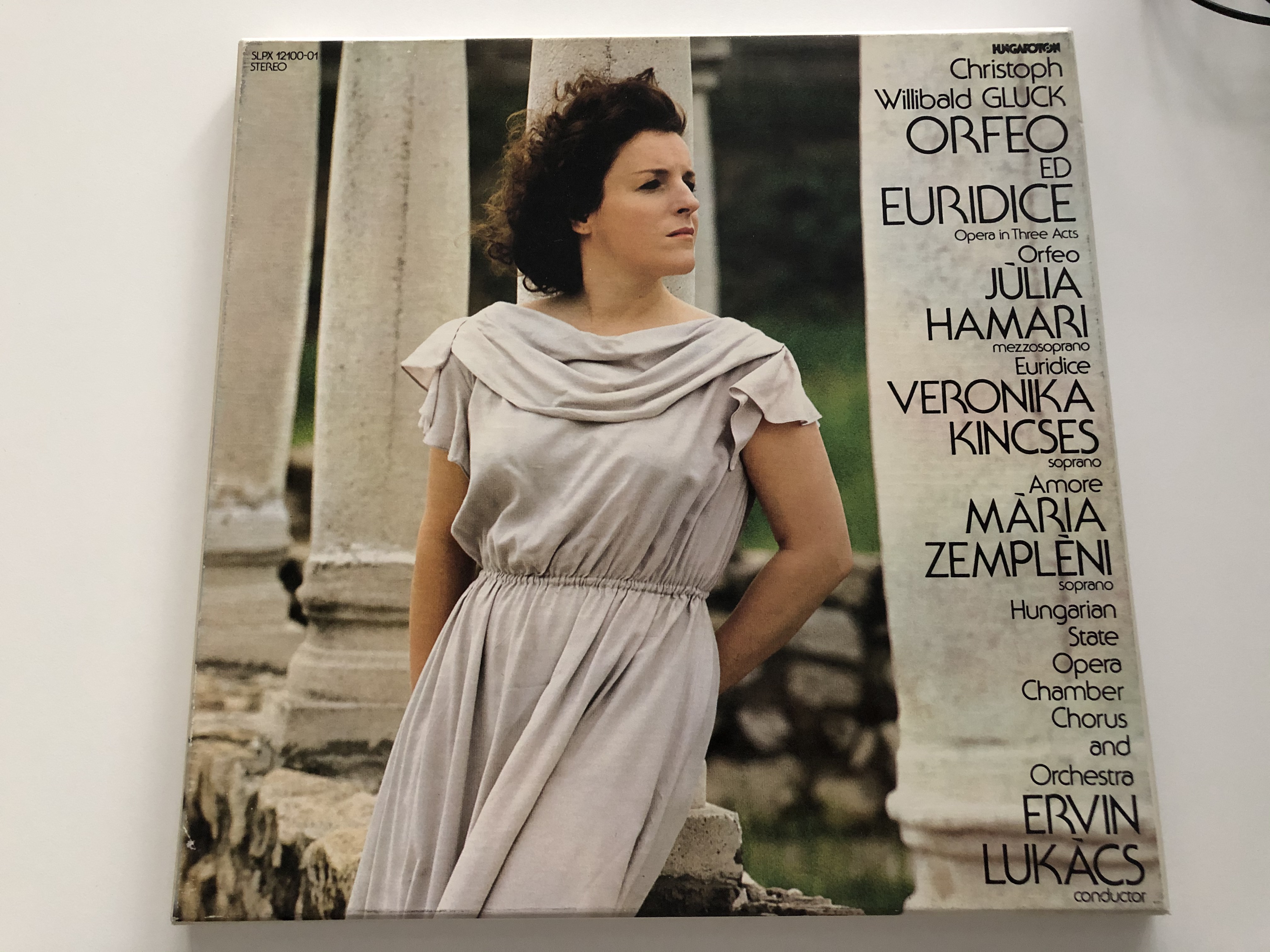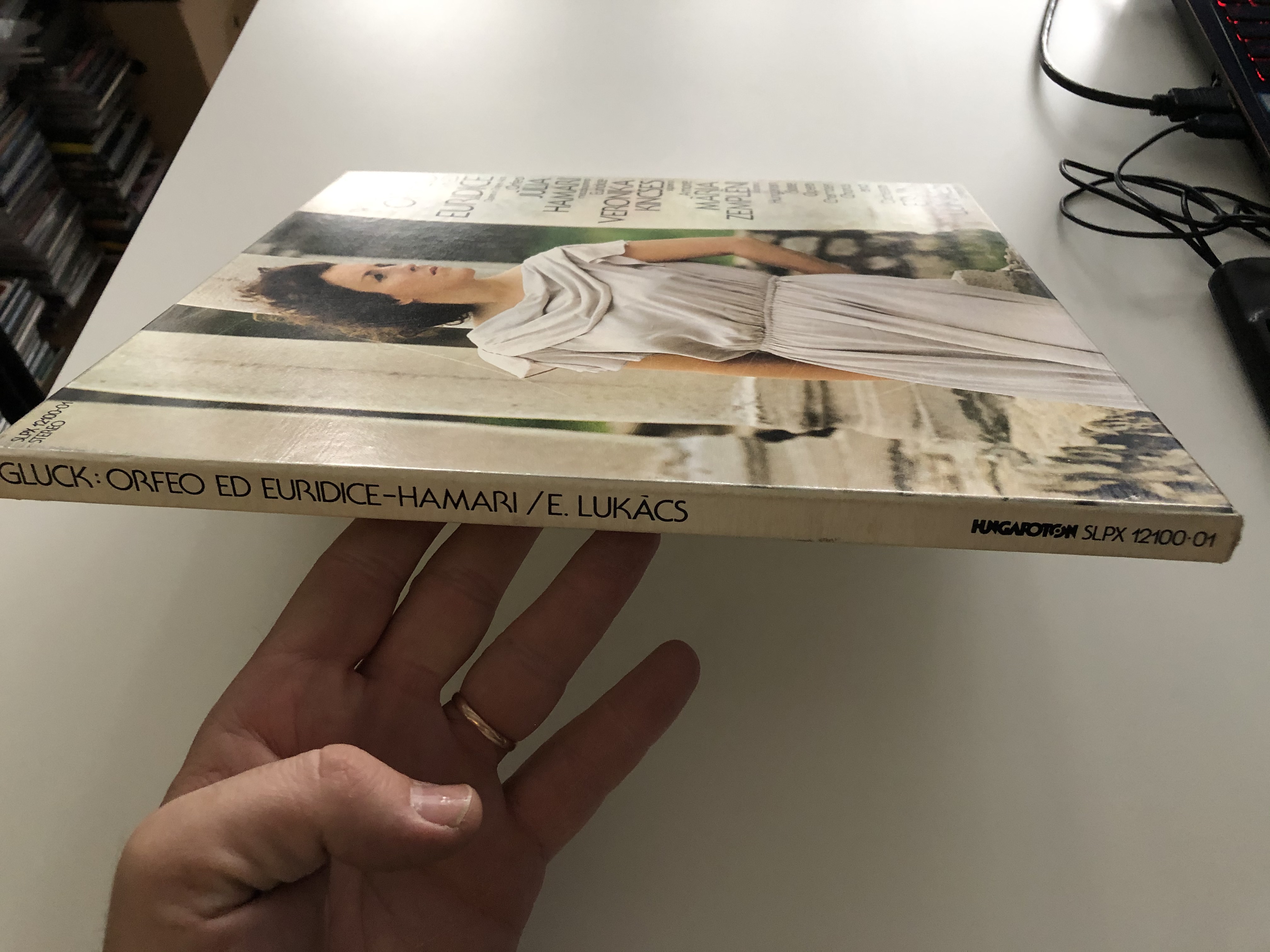Description
Christoph Willibald Gluck – Orfeo Ed Euridice - Opera in Three Acts / Orfeo: Julia Hamari (mezzasoprano, Euridice: Veronika Kincses (soprano), Amore: Maria Zempleni (soprano) / Hungaroton 2x LP 1980 Stereo
SLPX 12100-01
Orfeo ed Euridice (French: Orphée et Eurydice; English: Orpheus and Eurydice) is an opera composed by Christoph Willibald Gluck, based on the myth of Orpheus and set to a libretto by Ranieri de' Calzabigi. It belongs to the genre of the azione teatrale, meaning an opera on a mythological subject with choruses and dancing. The piece was first performed at the Burgtheater in Vienna on 5 October 1762, in the presence of Empress Maria Theresa. Orfeo ed Euridice is the first of Gluck's "reform" operas, in which he attempted to replace the abstruse plots and overly complex music of opera seria with a "noble simplicity" in both the music and the drama.
The opera is the most popular of Gluck's works, and was one of the most influential on subsequent German operas. Variations on its plot—the underground rescue mission in which the hero must control, or conceal, his emotions—can be found in Mozart's The Magic Flute, Beethoven's Fidelio, and Wagner's Das Rheingold.
Though originally set to an Italian libretto, Orfeo ed Euridice owes much to the genre of French opera, particularly in its use of accompanied recitative and a general absence of vocal virtuosity. Indeed, twelve years after the 1762 premiere, Gluck re-adapted the opera to suit the tastes of a Parisian audience at the Académie Royale de Musique with a libretto by Pierre-Louis Moline. This reworking was given the title Orphée et Eurydice, and several alterations were made in vocal casting and orchestration to suit French tastes.
Az Orfeusz és Euridiké (Orfeo ed Euridice) Christoph Willibald Gluck háromfelvonásos operája. Szövegkönyvét Ranieri de’ Calzabigi írta. Ősbemutatója 1762. október 5-én volt a bécsi Burgtheaterben. 1774. augusztus 2-án Párizsban a mű francia ízléshez igazított változatát mutatták be Pierre-Louis Moline szövegével, több balettbetéttel és más változtatásokkal (Orphée et Eurydice).
A mű Gluck legismertebb, legnépszerűbb és leggyakrabban játszott színpadi műve, egyúttal első ún. reformoperája. Megszületése óta rendszeresen szerepel a világ operaházainak színpadán. A 19. században többen átdolgozták, legismertebb Hector Berlioz verziója (1859).
A mai gyakorlatnak megfelelően Orfeuszt kontratenor vagy mezzoszoprán énekesnő alakítja, a másik két szerepet lírai vagy koloratúrszoprán művész. Játékideje 105–115 perc.
Tracklist:
| A1 | Act One - Scene 1 | |
| A2 | Act One - Scene 2 | |
| B1 | Act One - Scene 2 | |
| B2 |
Act Two - Scene 1 | |
| B3 | Act Two - Scene 2 | |
| C1 | Act Two - Scene 2 | |
| C2 | Act Three - Scene 1 | |
| D1 | Act Three - Scene 1 | |
| D2 | Act Three - Scene 2 | |
| D3 | Act Three - Scene 3 |
- Choir – Hungarian State Opera Choir
- Composed By – Christoph Willibald Gluck
- Conductor – Ervin Lukács
- Mezzo-soprano Vocals – Julia Hamari
- Orchestra – Hungarian State Opera Orchestra
- Soprano Vocals – Mária Zempléni, Veronika Kincses


BOX #61


























